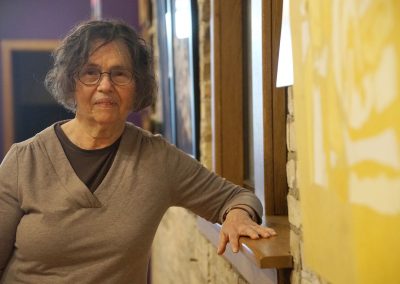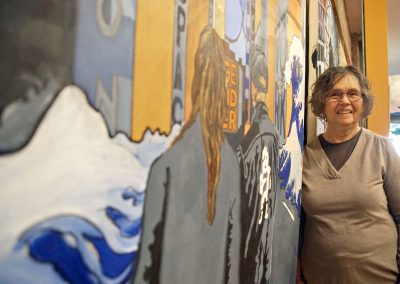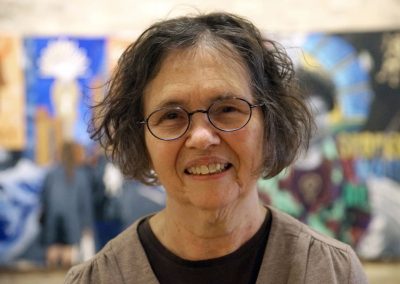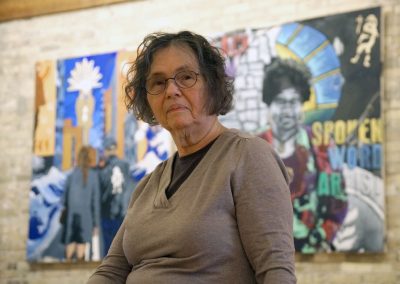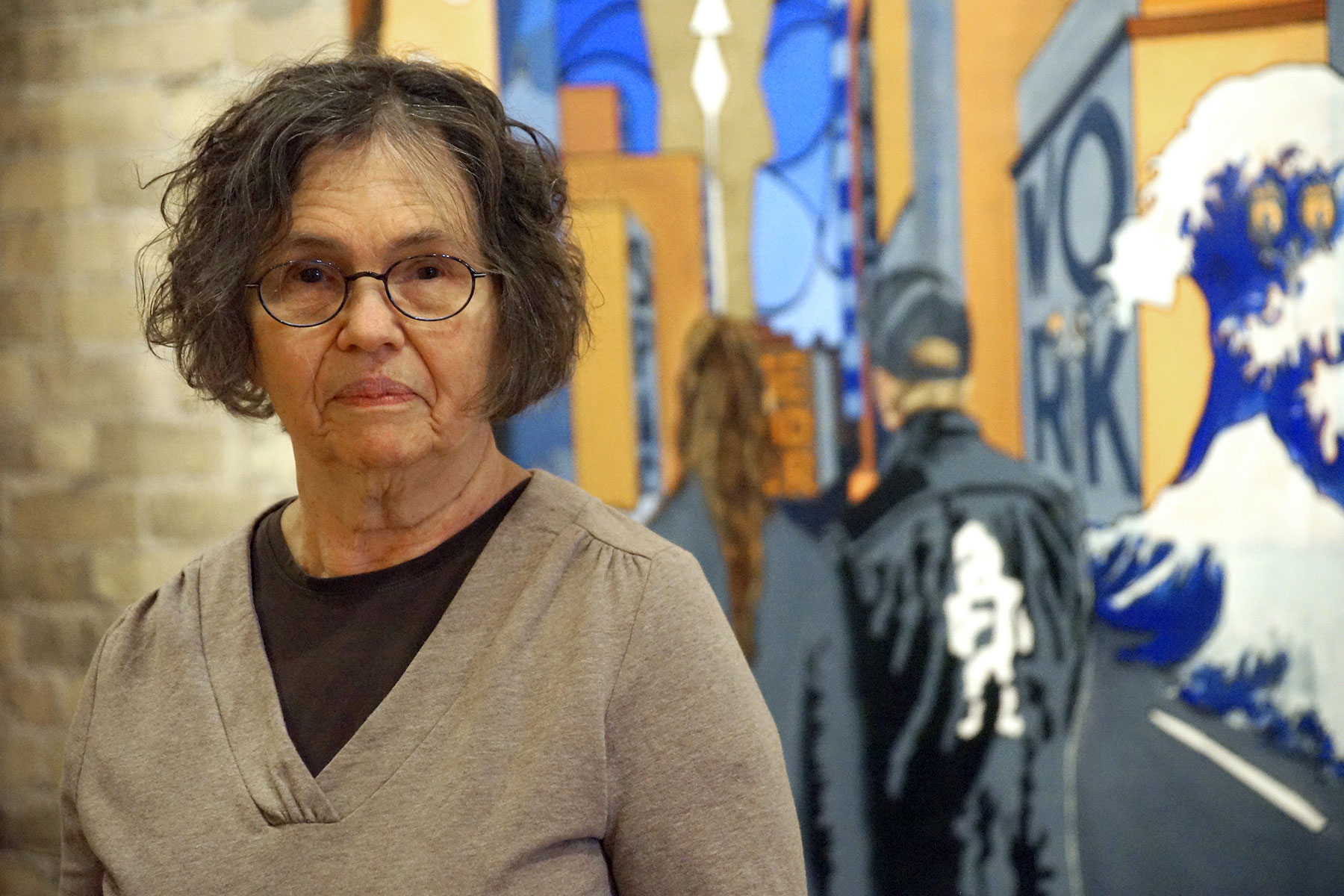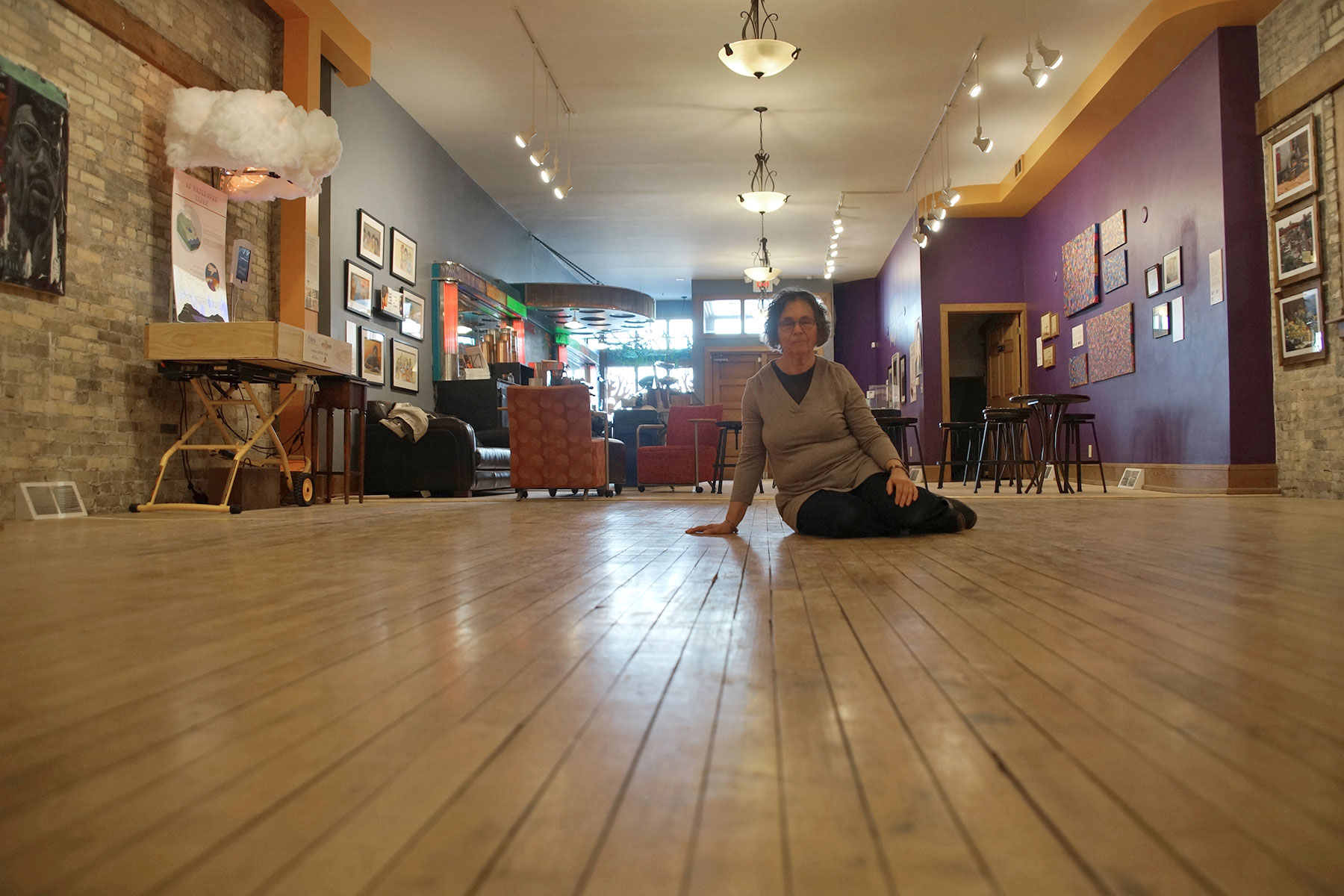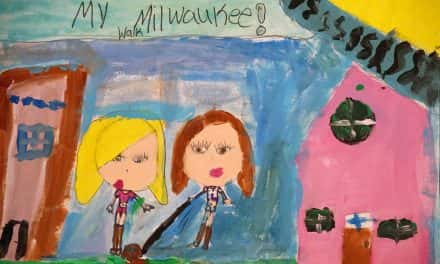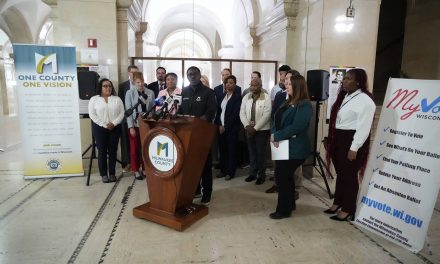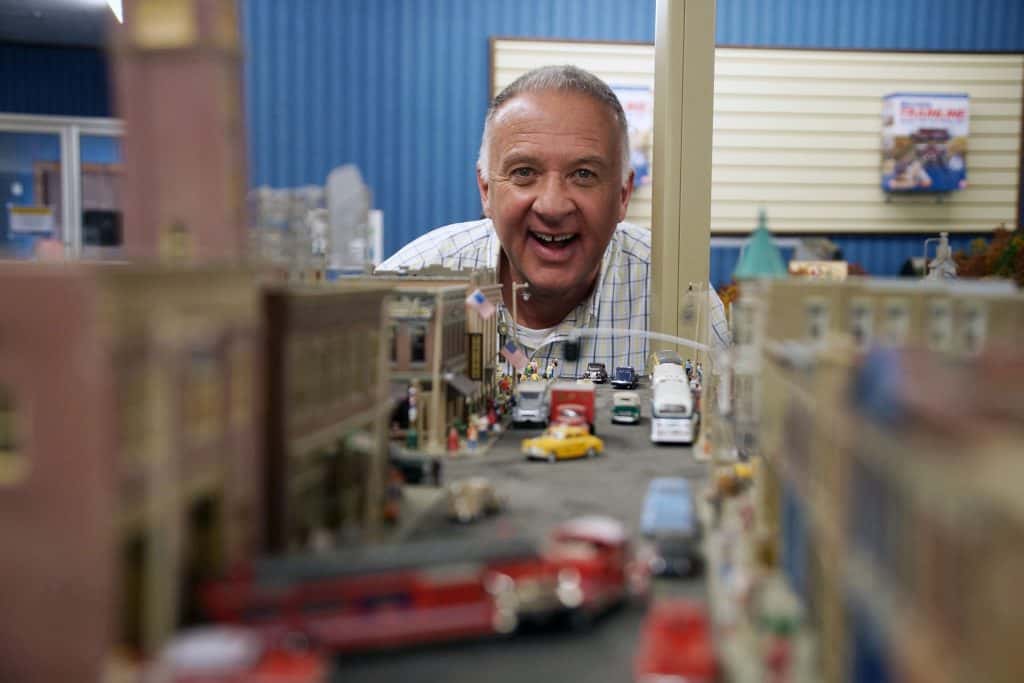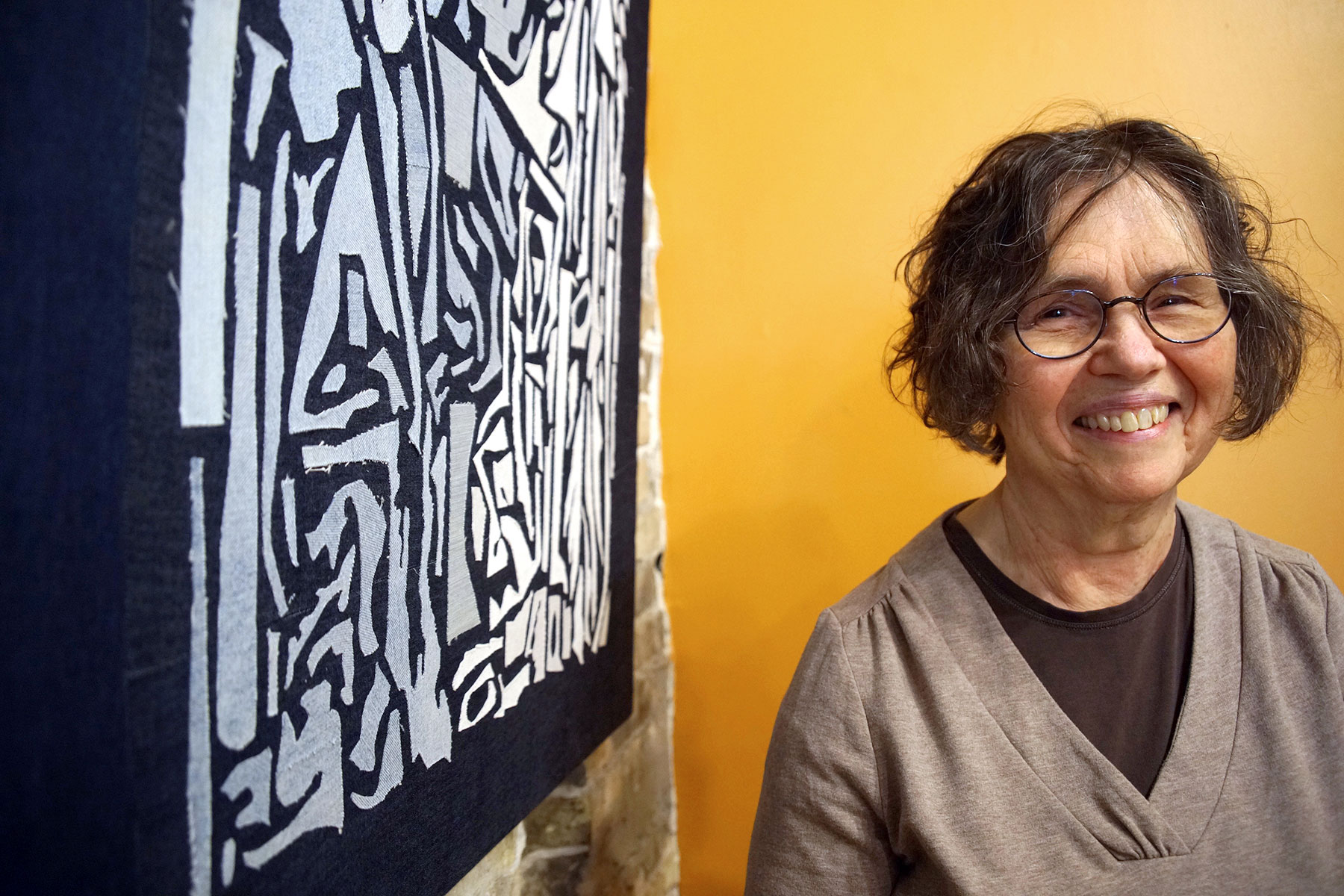
At the center of Milwaukee’s Open Housing Marches fifty years ago was a Catholic Priest that history books remember as Father James Groppi.
But for his friend, companion in activism, and the wife of his three children, Margaret Rozga remembers a different side of the Civil Rights leader from their private life together. Peggy has remained a force in the movement for social justice, continuing her late husband’s legacy that at times overshadowed her own decades of work. But her witness to the past stands as a reminder to what the Milwaukee community has forgotten, and the journey that Father Groppi followed to realize his dream of racial equality.
Q&A: Margaret Rozga
Milwaukee Independent: While James is most remembered for his marches here in Milwaukee, why is it rarely mentioned that he was in Selma with Dr. King? And do you know how that experience affected him?
Margaret Rozga: It was not Father Groppi’s first time in the South. Several other Milwaukee priests invited him to visit African American parishes in the South when he was first assigned to St. Boniface in 1963. Also he had been in Mississippi for a couple of weeks during the Mississippi Summer Freedom Project in 1964. In Selma, there were so many people there, that the presence of this or that person may not stand out. As history gets funneled down, some details are lost.
His work with Welfare Rights organizations, especially the 1969 demonstrations at the Capitol in Madison, the takeover of the Assembly chamber, also is rarely mentioned, and that was a far more significant time in his life than his participation in the Selma to Montgomery march.
Milwaukee Independent: Did you attend any sermons that James gave while he was a priest, and if so what was your favorite or most memorable mass?
Margaret Rozga: During the times that the Milwaukee NAACP Youth Council was headquartered at St. Boniface Church, many Youth Council members and supporters, including me, regularly went to the Sunday Mass. Father Groppi would be celebrating there. My favorite quote from a Father Groppi sermon is this: “I am a child of God, and if you don’t treat me like a child of God, I am going to scream.”
Milwaukee Independent: What was the transition like for James from priesthood to being a husband?
Margaret Rozga: In many ways the transition from being recognized as a priest to having that recognition denied was painful.
Milwaukee Independent: When you and James were married, did you personally face backlash over his history and background?
Margaret Rozga: I had a cousin who didn’t invite me to his wedding, but most friends and family were supportive or silent. My immediate family was wonderfully supportive.
Milwaukee Independent: Why did James ultimately abandon the option for an Episcopal priesthood?
Margaret Rozga: It wasn’t anything negative about Episcopalians. Father Groppi was born in Milwaukee, lived all his life in Milwaukee. His friends in the struggle were all in Milwaukee, and those are friendships that cannot easily be replaced. He decided he wanted to be here with family and friends.
Milwaukee Independent: James had a group of friends who were married former priests, how common was that at the time and was there a social stigma towards them?
Margaret Rozga: First let me explain his take on the term “former priest.” He believed traditional Catholic teaching that “Thou art a priest forever.” He used to say, “I never left anything. I got married and the Chancery Office wouldn’t give me an assignment.” He always appreciated the people who continued to call him Father Groppi. Some priests who married underwent a process the Church created to deal with the large number of priests marrying; they called it “laicization,” but he did not.
Even as a child in a Catholic grade school, I learned that ordination is one of the sacraments that confers “an indelible mark” on the soul. So in traditional Catholic teaching, a priest can’t be un-priested.
At the time we married, there were about 10,000 married priests in the United States. Many of them were educated men who hadn’t ever done much else that was controversial, so they were able to find positions in social service organizations, some in business or political office, some in the church as parish administrators or other positions. They continued to live without much social stigma.
Priests who had been deeply involved in social and racial justice work mostly continued to do this work sometimes living on the edge of poverty themselves.
Milwaukee Independent: Did you both ever consider leaving Milwaukee for a fresh start in another city?
Margaret Rozga: Not other than the time we were in Virginia and in Detroit while he considered becoming an Episcopal priest.
Milwaukee Independent: Did James ever feel his efforts for the Open Housing movement became nullified after Milwaukee experience its subsequent era of white flight?
Margaret Rozga: No, I don’t think so. He never mentioned such a thing. He saw the fight for social and racial justice as an ongoing struggle with everyone doing what she or he could do to help dismantle racism.
The open housing movement was needed because the African American population of Milwaukee was growing rapidly. Between 1950 and 1960, the African American population almost tripled in size, from about 21,000 to about 62,000, and kept growing so that by 1967 there were 90,000 African Americans in Milwaukee. But the housing available for African Americans did not correspondingly grow. Then some of the housing in African American neighborhoods was being torn down in urban renewal projects without making more housing available. What Milwaukee was doing was basically what later came to be called a “self-deport strategy,” that is, let’s make conditions miserable and maybe then they’ll go away.
In this light, the open housing marches were resistance to this pervasive strategy. They were as much about the right to move west of 27th street as they were about the right to move to the suburbs. They were about an immediate and crucial need for housing.
Milwaukee Independent: Looking back over the commitment and dedication James had to his cause, why do you think our community is so indifferent to those who sacrifice so much to make the world better?
Margaret Rozga: For those who are indifferent, maybe it’s because of what they might have to change about their own lives if they allowed themselves to see and to empathize. But I’m not convinced that the community in general is indifferent. Especially among the young people I’ve worked with in poetry workshops or on social justice projects. I see a hunger to find role models of people who have made a difference, people who’ve stood up against injustice and a deep admiration, almost a reverence, for those who they see as offering such role models.
Milwaukee Independent: Your children were born in the years after James was a priest and activist, so how do they relate the historical figure they hear about to the Dad that they grew up with?
Margaret Rozga: When in middle school, a teacher looked at my daughter’s name on the class list and said to her, “Groppi? Are you any relation to Father Groppi?” She said yes, he was her dad. The teacher responded, “Oh, no, dear. He was a priest. Priests can’t have children.”
So they sometimes had to deal with comments that were far off the mark. But they are immensely proud of their dad, of his courage. They are sometimes surprised at the extent to which people remember him and honor him even today more than 30 years after his death.
Now my nine year old granddaughter often asks about her Grandpa Jim and what he did. Once when she heard about an incident where African Americans were treated unjustly, she said, “That’s bad. Grandpa Jim would not like that. I don’t like that.”
Milwaukee Independent: Did James talk about his Civil Rights days with his children? If so, what did they ask most about, and what was he most reluctant to share with them?
Margaret Rozga: Our children were six, five, and two when their dad died. That’s very young to understand Civil Rights. We lived in a neighborhood where on our side of the block, the corner house was a White couple, the next house a Black family, then us, then a Black family, then one elderly White man, and so on down the block. Their friends in the neighborhood were Black, White, and biracial. The older two were in an integrated school. So they had a hard time picturing a world that needed a Civil Rights movement. They saw skin color, but they did not see it as a significant variable.
Milwaukee Independent: Was there a public perception of James that you felt was unfair?
Margaret Rozga: Sometimes people used to tell him, “I can’t do what you’re doing. You have the personality for it. I don’t.” He’d just shrug off the comment, but later he’d say, “Does he think it’s easy? Does he think I don’t have to work at doing what I do?” He saw speaking up for social justice as everyone’s responsibility.
Milwaukee Independent: What led James to his job with Milwaukee County Transit System (MCTS) as a bus driver, and what other opportunities did he consider?
Margaret Rozga: A bus driver on the downtown Summerfest shuttle said MCTS was hiring and to try applying there. It was the summer of 1976, and someone gave us a large pack of complimentary Summerfest tickets to distribute in the community, particularly to African Americans who were under-represented among those attending Summerfest. We gave away most of them and then we also went to Summerfest several times. We were both unemployed and had time in the evening when we were not looking for work. We walked from where we were living on 26th and McKinley to the downtown library, which was the west end of the down Summerfest shuttle route. We happened to have this same bus driver a couple of times, and he asked about how we were doing and the conversation developed from there.
Milwaukee Independent: Very little is known publicly about the time James was a MCTS bus driver, so can you share anything memorable about his experience?
Margaret Rozga: He would pack lunches with four or five sandwiches, fruit, and other snacks, much more that he could possibly eat. On his layovers, if there were people who stayed on the bus there at the end of the line, they were likely people who were homeless. He’d open his lunch and say, “Look at this! How does my wife think I can eat all of this? Can you help me out, eat some of this so I don’t have to take it home again?” That was the way he could continue to feed the hungry.
He also saw more evidence of how segregated Milwaukee was. When driving a crosstown route, he said he picked up mostly African Americans as he drove through the north side toward downtown. By the time he got to Wisconsin Avenue, they had all gotten off the bus. Then as he drove south, he started to pick up all White people. On the return trip, the White people had all gotten off the bus by the time he got downtown, and he would again drive north picking up all Black people.
Milwaukee Independent: What gave James the most inner peace?
Margaret Rozga: His faith.
Milwaukee Independent: How do you want the public to remember James, and has anyone ever considered doing a biopic movie about his life?
Margaret Rozga: There have been a few people, film-makers, who talked with him while he was still alive about doing a documentary. In one case, the film maker couldn’t find financial backing. Jon Aleckson of Madison Productions took a lot of footage and entered short works in film or video competitions. He wanted to do a longer project and talked with Channel 12 about using their archival news film which was lying in film canisters in their basement, not organized, not catalogued. Jon worked on identifying the relevant film for them, and then they wouldn’t give him permission to use it.
Milwaukee Independent: What would James think about the social condition of Milwaukee today?
Margaret Rozga: During his life, he was appalled at the cowardice of politicians, men, many of them Catholics who went to Mass on Sunday, but who feared being voted out of office and so did not live the gospel in their daily lives. That is, they did not feed the hungry, clothe the naked, comfort the afflicted, though they were in the positions as policy makers and they had the power to do so in a broad and inclusive way.
Since he saw that contradiction then, he’d be outraged to see such cowardice flowering again today, such indifference to the suffering of many and the deliberate inflicting of suffering upon many more — the Dreamers, refugees, people imprisoned, and especially young people who see avenues of advancement being closed to them.
Milwaukee Independent: If James were still alive, what message would he give to those young people interested in following his footsteps and standing up for social justice?
Margaret Rozga: Keep the faith.
© Photo
Lee Matz

